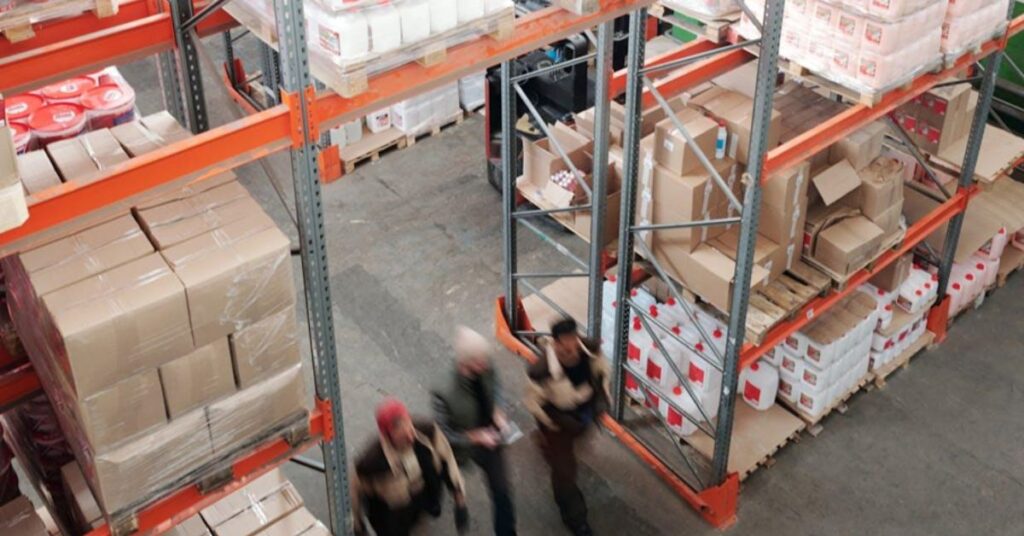Have you ever ordered something online and been thrilled when it arrived right on time, perfectly packed? Or maybe you’ve experienced the opposite – a late delivery or a damaged product. Guess what? How your order gets to you isn’t just about trucks and planes; it’s actually a big deal for how happy you are as a customer. This is where logistics comes in. It’s the behind-the-scenes magic that turns your online shopping into a happy experience. In this blog, we will explore how logistics plays a key role in making online shoppers like you really happy.
The Importance of Logistics in E-Commerce
Logistics serves as the backbone of e-commerce operations, handling everything from inventory management to order fulfillment and shipping. A well-managed logistics system ensures that products are delivered to customers on time and in the condition promised. This is essential in maintaining the trust and satisfaction of customers, who have high expectations when shopping online. Delays, incorrect deliveries, or damaged goods can quickly lead to dissatisfaction and lost sales.
E-commerce companies must prioritize logistics to meet the high expectations of today’s consumers. This means investing in robust logistics solutions that streamline the entire process, from managing inventory to ensuring fast and accurate deliveries. By doing so, businesses can maintain a competitive edge in the crowded online marketplace, where customer satisfaction is a key differentiator.
Impact of Transportation Management on Delivery Efficiency
In the world of e-commerce, efficient logistics is crucial for maintaining customer satisfaction. Many companies turn to experts like Ryder to optimize their supply chains. Ryder transportation management provides comprehensive logistics solutions that help businesses streamline their operations, ensuring timely and accurate deliveries. This is particularly important for e-commerce companies, where speed and reliability are key to keeping customers happy.
By partnering with a logistics provider like Ryder, businesses can focus on their core activities, such as marketing and product development, while leaving the complexities of logistics to the experts. This leads to increased customer satisfaction, as products are delivered more quickly and reliably. Customers are more likely to return to a business that consistently meets their delivery expectations, making effective logistics management a critical component of e-commerce success.
Inventory Management and Its Effect on Customer Satisfaction
Proper inventory management is essential for meeting customer expectations in e-commerce. Stockouts, overstocking, and inaccurate inventory records can lead to delays and mistakes in order fulfillment. When a customer places an order, they expect the product to be available and shipped without delay. However, poor inventory management can result in a product being out of stock, leading to disappointed customers and lost sales.
Advanced inventory management systems allow businesses to track stock levels in real-time, reducing the risk of errors and ensuring that products are available when needed. This not only helps in avoiding delays but also minimizes the risk of shipping incorrect or damaged products. When customers receive the products they ordered without delays or substitutions, their satisfaction and loyalty increase. Effective inventory management is, therefore, a critical factor in maintaining high levels of customer satisfaction in e-commerce.
The Role of Warehousing in E-Commerce
Warehousing plays a critical role in the logistics chain by storing and managing inventory until it’s ready for shipment. Efficient warehousing ensures that products are readily available for quick dispatch, reducing lead times and improving delivery speeds. When a customer places an order, the speed at which it can be fulfilled often depends on how efficiently the warehouse operates.
Strategically located warehouses can minimize shipping costs and transit times, contributing to faster and more reliable deliveries. This is particularly important in e-commerce, where customers expect quick delivery. By optimizing warehousing operations, businesses can improve their overall logistics efficiency and enhance customer satisfaction. A well-organized warehouse can mean the difference between a satisfied customer who receives their order quickly and an unsatisfied one who experiences delays.
Order Fulfillment Process and Its Impact on Customer Experience
The order fulfillment process is a key touchpoint in the customer journey. It involves picking, packing, and shipping products to customers. Streamlining this process is essential to avoid delays and errors. Customers who experience a smooth and timely order fulfillment process are more likely to be satisfied with their purchase and return for future business.
Shipping Options and Their Influence on Customer Decisions
Offering a variety of shipping options gives customers the flexibility to choose the delivery method that best suits their needs. Some customers prioritize cost and prefer free standard shipping, while others may value speed and opt for express delivery, even if it comes at an additional cost. Providing multiple shipping options not only meets different customer preferences but also plays a significant role in the purchasing decision. When customers have control over how and when their orders arrive, they are more likely to feel satisfied with their shopping experience.
Moreover, clear communication about shipping costs and delivery times is essential. Transparency in this area helps to manage customer expectations and reduces the likelihood of dissatisfaction due to unexpected delays or hidden fees. By offering a range of shipping choices and being upfront about delivery details, e-commerce businesses can improve the overall customer experience and foster loyalty.
The Role of Last-Mile Delivery in Customer Satisfaction
Last-mile delivery, the final step in the logistics process, is often the most crucial in terms of customer satisfaction. This stage involves getting the product from a local distribution center to the customer’s doorstep. It is during this phase that many potential issues can arise, such as delays, incorrect deliveries, or damaged goods. Given that last-mile delivery is the point of direct interaction between the business and the customer, its success or failure can significantly impact the customer’s perception of the entire shopping experience.
Optimizing last-mile delivery involves strategies such as using local delivery services, employing real-time tracking, and offering flexible delivery windows. These measures can reduce the likelihood of issues and improve the accuracy and timeliness of deliveries. When customers receive their orders as expected, their confidence in the business grows, leading to increased satisfaction and the potential for repeat purchases.
Returns Management and Its Effect on Customer Loyalty
A smooth and hassle-free returns process is critical for maintaining customer loyalty in e-commerce. Returns are a natural part of online shopping, as customers may receive products that do not meet their expectations or that they simply no longer want. How a business handles returns can make a significant difference in the customer’s overall experience.
An efficient returns management system should be easy to navigate, with clear instructions for returning items and quick processing of refunds or exchanges. Offering free return shipping can also enhance customer satisfaction by removing a potential barrier to making a purchase. When customers know they can return items without difficulty, they are more likely to shop with confidence and return to the business for future purchases.
Logistics is the backbone that keeps the online shopping experience smooth. From swift deliveries to easy returns, logistics directly impacts how customers feel about a brand. When packages arrive on time, undamaged, and with clear tracking, trust grows. Conversely, delays, errors, or hassles can quickly sour a customer’s impression. In today’s competitive market, businesses that master logistics gain a significant edge. It’s not just about getting products from point A to B; it’s about crafting a seamless experience that turns casual shoppers into loyal fans.







